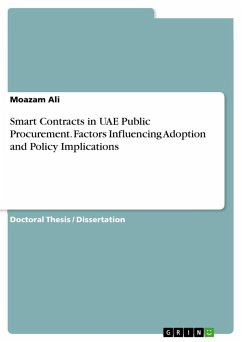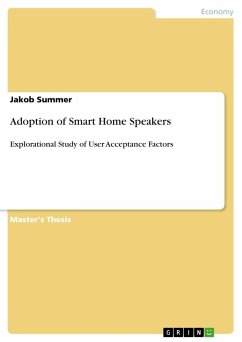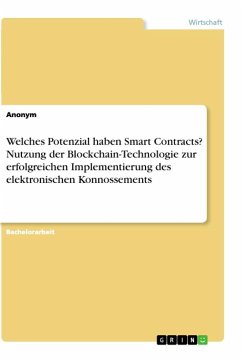Doctoral Thesis / Dissertation from the year 2024 in the subject Business economics - Project Management, grade: 3.7, British University in Dubai, course: Project Management, language: English, abstract: The purpose of this study is to examine people's perceptions about the use of smart contracts through blockchain technology for public procurement in the United Arab Emirates (UAE). The research integrates the Technology Acceptance Model (TAM), the Technology-Organization-Environment (TOE) framework, and the Innovation Diffusion Theory (IDT) to develop a conceptual framework for understanding the factors that influence the behavioral intention to adopt smart contracts in the public procurement process. The study employs a quantitative research methodology. Data was collected through a survey questionnaire distributed to key stakeholders involved in public procurement, including government officials, suppliers, and citizens. The survey instrument measured constructs such as relative advantage, complexity, trialability, observability, perceived compatibility, perceived enjoyment, technology awareness, perceived risk, perceived efforts, and perceived constraints from suppliers, regulations, and business partners. The findings reveal that relative advantage, trialability, observability, perceived compatibility, perceived enjoyment, and technology awareness have a significant positive influence on the behavioral intention to adopt smart contracts in public procurement. Conversely, complexity, perceived risk, and perceived constraints from suppliers, regulations, and business partners have a significant negative influence on the behavioral intention. The results also indicate that the TAM model moderates the relationships between the various factors and behavioral intention.
Hinweis: Dieser Artikel kann nur an eine deutsche Lieferadresse ausgeliefert werden.
Hinweis: Dieser Artikel kann nur an eine deutsche Lieferadresse ausgeliefert werden.








